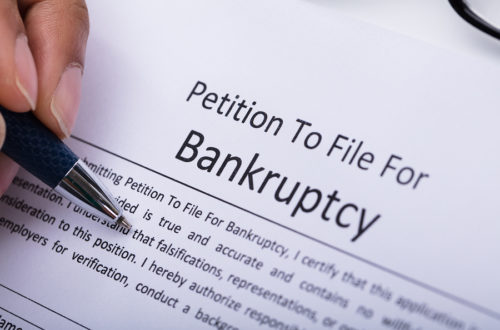If you have been sued by a debt collector or medical service provider, you know how stressful it can be. According to the National Consumer Law Center, half of the collection items on consumers’ credit reports are from medical debt. You may be tempted to ignore a medical debt lawsuit and hope it goes away. But this is one of the worst things you can do, because the debt collector will automatically win by default.
Here are some steps you can take if you are facing a medical debt lawsuit:
- Confirm the debt. You cannot properly address the lawsuit if you do not understand where the debt came from. Look back at all past medical bills and find the date of service and itemized list of services rendered. Mistakes can happen, so make sure and confirm all details are accurate.
- Seek advice. Consumers sometimes make the mistake of representing themselves in these type cases. Hiring an attorney to advise you is a wise move and does not have to cost a lot. Many lawyers provide a free consultation before taking you on as client. During this consultation, they will advise you on the best course of action for your particular situation.
- Prepare for court. You must first prepare an answer to the lawsuit, including any defenses and countersuits. This will involve filing paperwork, mailing paperwork and showing up on the initial court date.
- Understand wage garnishment. If you are found liable for the debt or you fail to answer the lawsuit, the judge will rule against you and the court may issue an order allowing the debt collector to garnish your wages. By federal law, they cannot leave you with less than 75% of your income or $217.50 per week — whichever is greater. Medical debt collectors are able to garnish your wages, but they cannot garnish Social Security benefits, disability insurance payments, unemployment insurance payments, VA benefits, pension distributions, child support payments, or public assistance benefits.
- Watch out for balance billing. This happens when your hospital or medical provider bills you instead of (or in addition to) Medicaid or Medicare. This is a forbidden practice and you are not responsible for any amounts due when this happens. You can prove if you were a victim of balance billing by requesting an “Explanation of Benefits” from your insurer that states the amount they covered and the amount you still owe.
- Stop lawsuits before they happen. Make sure the hospital did not make an error that resulted in a larger bill. Have your bill examined by a medical bill advocate, who is familiar with medical billing and coding and request they review the charges. You can start your search with the National Association of Healthcare Advocacy Consultants. Debt collectors, hospitals, and other medical providers do not want to take you to court. It costs them money, too and the odds of getting the full amount owed is slim. They are almost always willing to work with you before filing a lawsuit. Try to negotiate and apply for financial assistance. You can also set up zero-interest payment plans directly with your healthcare provider. Most importantly, keep the lines of communication open.
- Consider bankruptcy as an option. At any point in the process, you can choose to file for bankruptcy, which can completely discharge your medical debt. There are two types of bankruptcy: Chapter 7 and Chapter 13. Chapter 7 bankruptcy is often considered the most straightforward kind of bankruptcy and allows consumers to gain a financial fresh start. This requires you sell off your assets to discharge your debts. Despite what many people believe, it does not automatically mean you will lose your home, your car or your retirement savings. If you file for Chapter 13, you do not have to sell off any assets, but the debt will not disappear. Instead, you will be put on a 3-5 year payment plan in order to settle.
Those who have experienced illness or injury and found themselves overwhelmed with medical debt should contact an experienced Miami bankruptcy attorney. In bankruptcy, medical bills are considered general unsecured debts just like credit cards. This means that medical bills do not receive priority treatment and can easily be discharged in bankruptcy. Bankruptcy laws were created to help people resolve overwhelming debt and gain a fresh financial start. Bankruptcy attorney Timothy Kingcade knows how to help clients take full advantage of the bankruptcy laws to protect their assets and get successful results. Since 1996 Kingcade Garcia McMaken, P.A. has been helping people from all walks of life build a better tomorrow. Our attorneys’ help thousands of people every year take advantage of their rights under bankruptcy protection to restart, rebuild and recover. The day you hire our firm, we will contact your creditors to stop the harassment. You can also find useful consumer information on the Kingcade Garcia McMaken website at www.miamibankruptcy.com.
Related Resources:

